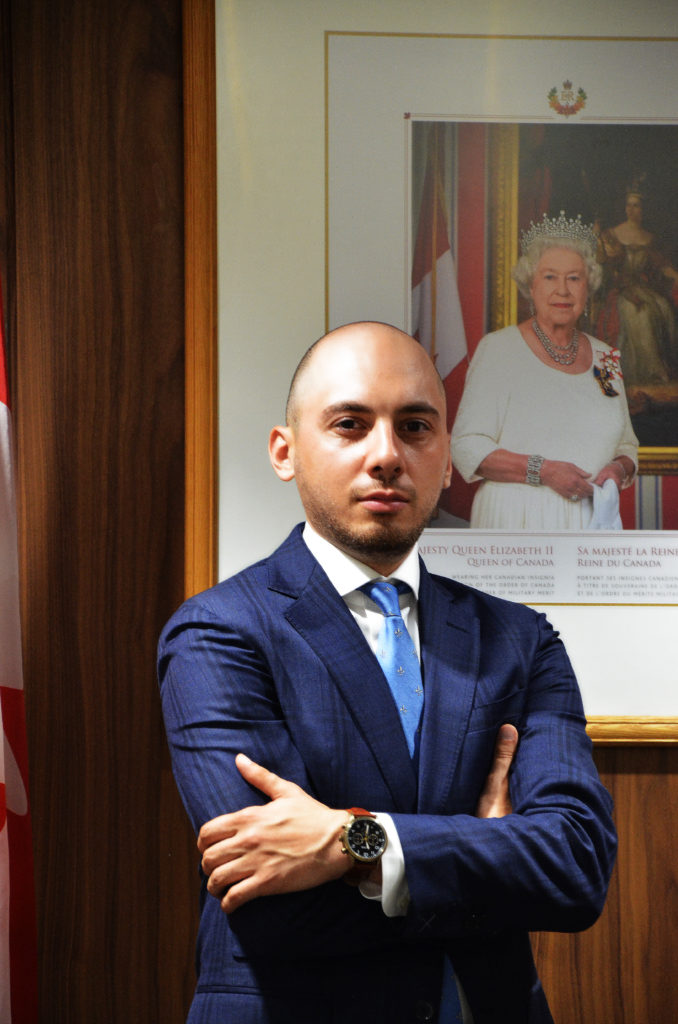Online Canadian Study Permit for EU Nationals
Find out how you could apply for Canadian study permit to study in Canada.
What do I need to do to apply for Canadian Study permit from European Union?
Applying for a Canadian Study Permit from the European Union (EU) follows a clear and systematic process. A study permit is required if you plan to study in Canada for more than 6 months. Below is a step-by-step guide on how to apply for a study permit as an EU citizen:
1. Get Accepted to a Designated Learning Institution (DLI)
Before applying for a study permit, you need to be accepted by a Designated Learning Institution (DLI) in Canada. DLIs are universities, colleges, or other educational institutions that are approved by the Canadian government to host international students.
- Apply to a DLI: Submit your application to a Canadian university or college. If accepted, you will receive a Letter of Acceptance (LOA), which is required for the study permit application.
2. Check Eligibility Requirements for a Study Permit
To be eligible for a Canadian study permit, you need to meet certain requirements. These include:
- Proof of Acceptance: You must have a valid Letter of Acceptance (LOA) from a DLI.
- Proof of Financial Support: You need to show that you have sufficient funds to cover:
- Tuition fees.
- Living expenses (for yourself and any family members accompanying you).
- Return transportation to your home country.
- No Criminal Record: Applicants must not have a criminal record. In some cases, you may be required to submit a police clearance certificate.
- Good Health: You might need to undergo a medical examination to ensure you're in good health.
- Intent to Leave Canada: You must convince the immigration officer that you will leave Canada when your studies are completed.
3. Gather Required Documents
To apply for a study permit, you’ll need to gather the necessary documents. The required documents typically include:
- Letter of Acceptance: From a DLI in Canada.
- Proof of Financial Support: Documents showing that you have enough money to support yourself, such as:
- Bank statements.
- Affidavit of support from parents or sponsors.
- Proof of a scholarship (if applicable).
- Passport: A valid passport for yourself and any family members applying with you.
- Photographs: Two passport-sized photos for each applicant.
- Statement of Purpose (SOP): A letter explaining why you want to study in Canada, why you chose the specific program, and your plans after completing your studies.
- Police Certificates: To prove you have no criminal background (if required).
- Medical Examination Results: If required.
- Other Documents: Additional documents as requested by the Canadian consulate or visa office.
4. Hire Lawyer or RCIC for the Application
Your lawyer or RCIC can apply for a Canadian study permit either online or on paper.
-
Online Application:
- Your Lawyer will complete the application for your study permit.
- Completed study permit application form (IMM 1294).
- Upload the required documents.
- Pay the processing fee (about CAD $150) online.
-
Paper Application:
- Download the study permit application package from the IRCC website.
- Complete the application form and gather the required documents.
- Submit your application to the Canadian Visa Application Centre (VAC) in your country.
5. Pay the Application Fee
The fee for processing a study permit is approximately CAD $150. If you are required to provide biometrics (fingerprints and photo), you will need to pay an additional CAD $85.
- Payment Options: You can pay using a credit card (if applying online) or pay through the VAC if applying on paper.
6. Biometrics Appointment (If Required)
In some cases, you may need to provide biometrics (fingerprints and a photograph). You will be informed if this is required after submitting your application. If you need to provide biometrics, you’ll need to make an appointment at a VAC and pay an additional CAD $85.
7. Wait for Processing
After submitting your application, it will be processed by the Canadian visa office. The average processing time for a study permit is typically 4-8 weeks depending on your application and where it’s being processed. You can check the status of your application online through your IRCC account.
- Processing times can vary, so check the estimated time for your specific case on the IRCC website.
8. Receive a Decision
Once your application is processed, you will be notified of the decision. If your study permit is approved, you will receive a Port of Entry (POE) Letter of Introduction and, if applicable, a temporary resident visa (TRV) or electronic travel authorization (eTA).
9. Travel to Canada
Once you have received your study permit approval and POE letter, you can make travel arrangements to Canada. Upon arrival in Canada:
- Present your POE Letter of Introduction and any other documents requested (like your passport, medical certificate, etc.) to the border services officer.
- The officer will issue your study permit at the port of entry.
10. Start Your Studies in Canada
After you’ve received your study permit, you can start your studies at your DLI. Remember, your study permit is valid only as long as you are enrolled in a full-time program, and you must maintain your student status in Canada.
Additional Tips:
- Work While Studying: As a study permit holder, you may be eligible to work on or off-campus in Canada, depending on the conditions of your permit.
- Spouse and Children: If your spouse or children are accompanying you, they may also need to apply for permits (spouse work permit, children study permit).
- Permit Extensions: If you need more time to complete your studies, you can apply to extend your study permit before it expires.
- Post-Graduation Work Permit (PGWP): After completing your studies, you may be eligible for a Post-Graduation Work Permit that allows you to work in Canada.
Conclusion
Applying for a Canadian study permit from the EU involves getting accepted to a Canadian educational institution, preparing the necessary documents, and submitting an application online or in person. Be sure to check the specific requirements of the Canadian embassy or consulate in your country, as processing times and additional requirements may vary.
Start your Process Today by Completing the Online Assessment Form.







